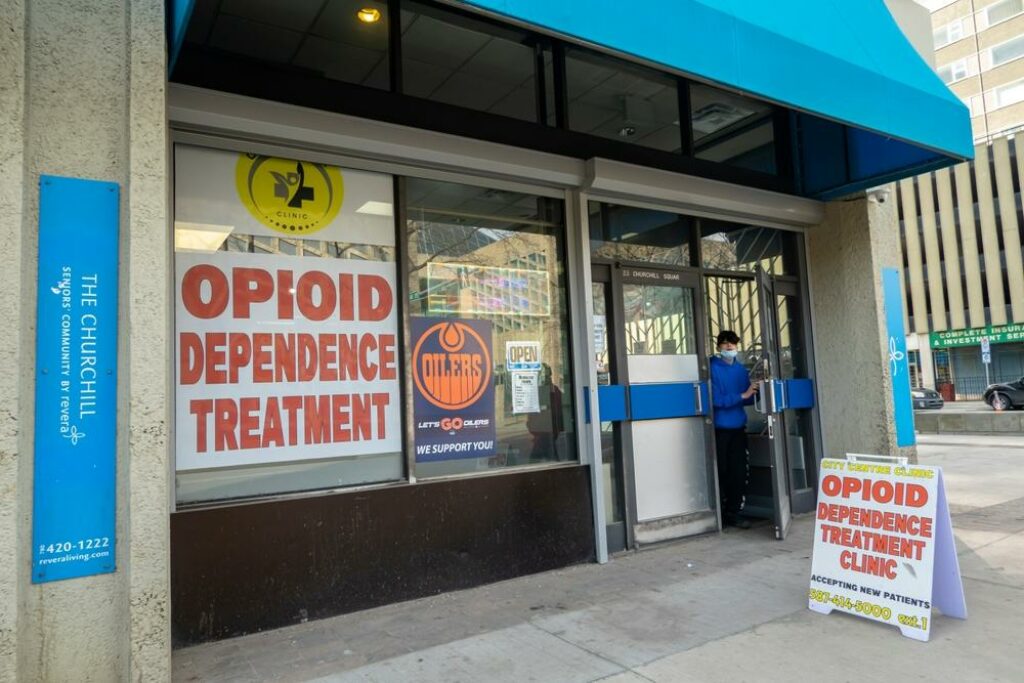
What is Opioid Dependence Treatment and How Affordable it is
When it comes to pain, especially in severe or chronic cases, it’s only natural and understandable that a person would want to “kill” it by any means necessary. The only issue is, some of these pain medications provide such effective, long lasting relief that they became an addiction epidemic.
Related Topics (Sponsored Ads):
Of all the various types of pain killers out there, Opioid dependence in particular is a serious and pressing public health concern that affects millions of individuals globally. At one point in time, doctors were notoriously prescribing these opioids to patients without proper limitations or boundaries, which sadly led to many deaths as a result. The treatment for opioid dependence is a vital step in combating this problem, aiding those grappling with addiction in achieving recovery.
This article discusses the various options available for opioid dependence treatment, including their significance, effectiveness, costs, and accessibility.

Opioid Dependence Treatment: A Comprehensive Approach
Opioid dependence treatment entails a comprehensive approach to tackle both the physical and psychological aspects of addiction. It is imperative to recognize that opioid dependence is a complex and chronic condition that necessitates long-term management and support. Overall, the treatment aims to diminish opioid use, prevent relapse, and enhance the overall quality of life for individuals grappling with addiction.
Medication-Assisted Treatment (MAT)
One of the primary approaches to treating opioid dependence is Medication-Assisted Treatment (MAT). This approach involves the use of medications, such as methadone, buprenorphine, and naltrexone, combined with counseling and behavioral therapies. These medications work to alleviate withdrawal symptoms, reduce cravings, and block the negative effects of opioids.
MAT has been widely acknowledged as an effective treatment option for opioid dependence. It aids individuals in managing their addiction while addressing the underlying physical dependence on opioids. However, the cost of MAT can vary, depending on the specific medication and the frequency of doctor visits for prescription refills. On the bright side, some insurance plans may cover MAT, making it more affordable for individuals seeking this treatment option.
Counseling and Behavioral Therapies
In addition to medication-assisted treatment, counseling and behavioral therapies play also a crucial role in addressing the psychological aspects of opioid dependence. Counseling helps individuals get to the root causes of their addiction, acquire coping skills, and develop strategies to prevent relapse. Behavioral therapies, such as cognitive-behavioral therapy (CBT) and contingency management, are also effective in promoting long-term recovery.
The cost of counseling and behavioral therapies can fluctuate, depending on the frequency of sessions and the specific type of therapy used. Some individuals may have access to these services through insurance coverage or community-based programs, making them more affordable and accessible. For this reason, it is important for individuals seeking treatment to explore the options available to them and inquire about potential financial assistance, or sliding scale fees for therapy sessions.
Inpatient and Outpatient Treatment Programs
In addition to medication-assisted treatment and counseling, inpatient and outpatient treatment programs provide intensive care and support for individuals dealing with opioid dependence. Inpatient programs offer 24/7 medical supervision, intensive therapy, and a structured environment to help individuals detox and commence their recovery journey. These programs can be more costly due to the residential nature of the treatment, but the good news is, they may be covered by insurance for those who have suitable coverage.
Outpatient treatment programs provide flexibility for individuals to receive treatment while maintaining their daily responsibilities. These programs offer counseling, group therapy, and medical support on an outpatient basis, allowing individuals to continue with work, school, or family commitments. The cost of outpatient programs vary, based on the frequency of sessions and the specific services offered. Individuals should inquire about potential insurance coverage or financial assistance options to make outpatient treatment more affordable.
Support Groups and Peer Support
Support groups, such as Narcotics Anonymous (NA) and SMART Recovery, provide invaluable peer support for individuals in recovery from opioid dependence. These groups offer a sense of community, understanding, and encouragement for individuals working towards sobriety. Peer support can be a cost-effective and accessible option for those seeking ongoing support outside of formal treatment programs.
The accessibility of support groups is often community-based, with meetings held in various locations and online platforms. Many support groups operate on a voluntary donation basis, making them financially accessible for individuals in recovery. The sense of camaraderie and shared experiences in support groups can significantly contribute to an individual’s overall recovery journey.
Financial Implications and Insurance Coverage
When considering treatment options for opioid dependence, it is essential to understand the financial implications and potential insurance coverage. The cost of treatment is largely based on the specific services, medications, and therapy sessions required.
Many insurance plans offer coverage for substance abuse treatment, including opioid dependence treatment, as part of their behavioral health benefits. It is important for individuals to review their insurance policies, understand the extent of coverage, and inquire about any potential out-of-pocket expenses. Some treatment facilities and providers may also offer financial assistance, sliding scale fees, or payment plans to make treatment more affordable for those in need.
Affordability and Accessibility
To wrap it up, the affordability and accessibility of treatment options for opioid dependence can vary based on factors such as location, available resources, and individual financial circumstances. It is important for individuals seeking treatment to explore all available options, including community-based programs, public health services, and non-profit organizations that may offer low-cost or free treatment options. These programs may offer sliding scale fees, subsidies, or grants to help individuals access the treatment they need.
By exploring a range of treatment options and seeking financial assistance where available, individuals can improve the affordability and accessibility of opioid recovery treatment.




